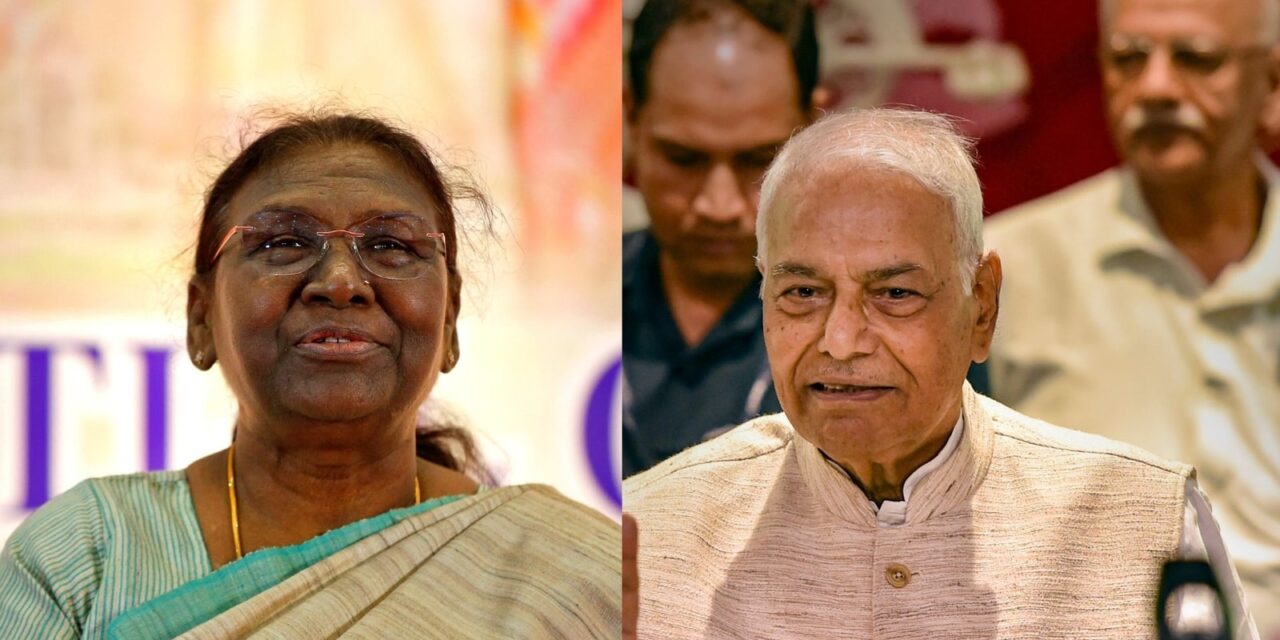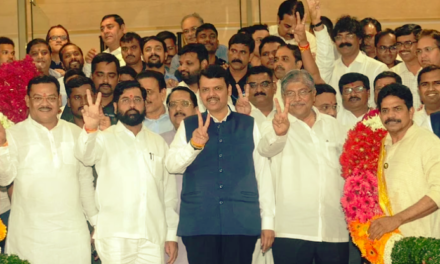Droupadi Murmu (64) a woman made history by becoming India’s first tribal president.
Fielded by the BJP led National Democratic Alliance (NDA), Murmu got more than 70 per cent of the votes cast, and at least 20 opposition votes, winning the election by a massive margin, defeating common opposition candidate Yashwant Sinha (84).
“India scripts history. At a time when 1.3 billion Indians are marking Azadi ka Amrit Mahotsav, a daughter of India hailing from a tribal community born in a remote part of India has been elected our President,” tweeted Prime Minister Narendra Modi in a congratulatory message.
Murmu has had a long innings in politics.
The BJP government in Jharkhand, headed by a plainsman, Raghubar Das, attempted to amend two laws that safeguarded tribal communities’ rights to their land the Chhotanagpur Tenancy Act and the Santhal Parganas Tenancy Act.
The amendments sought to give the tribal people the right to let the government make commercial use of their land, and allowed the government to take their land on lease.
The original laws allowed land transactions only among tribals. These attempts were among the factors that gave rise to the Pathalgarhi movement, where tribals banned plainspeople from entering forest areas by erecting physical barriers and faced stringent police action.
Murmu went against BJP government and returned the Bills to the Jharkhand government, which ultimately withdrew them.
The Jharkhand government changed during her tenure. She was even-handed, advising new Chief Minister Hemant Soren to desist from diluting the composition of the Tribal Advisory Council (TAC).
Her successor, Ramesh Bais, followed in her stead and ultimately the Soren-led Jharkhand Mukti Morcha government had to withdraw those changes.
Murmu’s name came up for discussion as president even in 2017 but on that occasion, the government chose Ramnath Kovind, the outgoing president.
This time, she was selected by the parliamentary board of the BJP from a shortlist of 20 candidates.
Murmu comes from Odisha’s Mayurbhanj district, which adjoins Jharkhand’s East Singhbhum district.
She is a Santhali tribal, a group that holds sway from Odisha to north Bengal. She began life as a government official in the agriculture department, becoming councillor and later vice-chairperson of the Rairangpur Nagar Panchayat, and also vice-president of the BJP’s Scheduled Tribes Morcha in Odisha.
In 2000 she became MLA, winning for a second time in 2009. In between she became minister of state for transport and commerce, and then fisheries and animal husbandry in the state in the coalition between the Biju Janata Dal and the BJP.
However later the alliance broke up and Murmu had to step down.
But even after a stint as minister, the affidavit she furnished when she was contesting the Assembly elections said she had no house, only a small bank balance and some land.
In the 2014 Assembly elections which she contested from Rairangpur, she listed her assets as Rs 2 crore with liabilities of Rs 14 lakh and three criminal cases.
Congratulations poured in from all corners of India and the world. Her village in Mayurbhanj celebrated late into the night singing, dancing and distributing laddoos.
This is the second time that Odisha has given India a president the first was V V Giri, who was born in the state and grew up there.
Yashwant Sinha, the opposition candidate she defeated, was gracious in his congratulations, but said the issues he had raised during the contest remained pertinent.
Adding the new president must act to prevent the misuse of the Enforcement Directorate, CBI and other public bodies. “These institutions are also being misused to engineer defections and topple Opposition-run state governments.
India has never seen political corruption of such magnitude. This, coupled with the poisonous politics of polarisation, poses a grave danger to democracy and communal harmony in India,” Yashwant Sinha said and thanked the Opposition for backing him.









